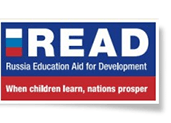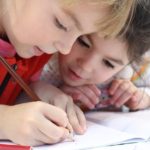One of the main objectives of the READ Program is to develop regional and transnational cooperation and partnerships between specialists and experts in the field of education assessment. READ has fostered such partnerships through joint projects, training, educational events, and grant programs. Countless joint discussions and exchanges of views organized within the Program lead to a better understanding of common problems in education and helps to develop solutions.
These partnerships of experts from the same region live beyond the frames of the Program. READ participants who met within different READ projects then form their own societies that bring together educational specialists of all professional levels from Central Asia and Eastern Europe to strengthen the professional community, to create a cumulative effect from the implementation of joint projects. They support researchers and educators in overcoming methodological needs, building cooperation with colleagues and research results dissemination.
Last year members of Europe and Central Asia Comparative Education Society that was formed as an outcome of cooperation for the implementation of READ projects, have participated in numerous online discussions on different topics related to overcoming COVID-19 restraints and results for education. Together they have participated in grant competitions and research calls dedicated to improvement of transparency and accountability in education in the region of Central Asia. They have applied for organizing side events and sessions at the UNESCO World Conference on Education for Sustainable Development and World Bank Civil Society Forum 2021. The most important achievement for the society is becoming an organizing partner for the UN Major Group NGOs – the biggest community of independent nongovernmental organizations working directly with the UN High Level Political Forum for Sustainable Development.
Thus, we can say with confidence that the READ Program successfully fulfills one of its tasks of uniting specialists and forming their expert potential. This work continues outside the Program, having a significant impact on the development and transformation of education in the regions participating in the READ Program. It advances societies in working towards the achievement of the universal goal on education, SDG 4.







